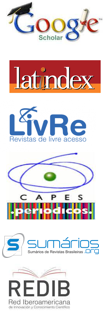Amazonglês: uma Proposta Alternativa para o Aprendizado do Vocabulário Regional em Inglês
DOI:
https://doi.org/10.17921/2447-8733.2024v25n4p709-715Resumo
Neste artigo, apresentamos a avaliação de uma proposta de Unidade de Ensino Potencialmente Significativa, denominada Amazonglês, elaborada para fomentar a aprendizagem de vocabulário em língua inglesa, no Ensino Fundamental II. A pesquisa tem como aporte teórico, a Teoria da Aprendizagem Significativa que propõe que novos conhecimentos sejam adquiridos de maneira mais eficaz quando podem ser conectados a conceitos pré-existentes, facilitando assim uma compreensão mais profunda e duradoura. A metodologia utilizada foi a pesquisa qualitativa e descritiva. Para a coleta de dados, foi utilizado um questionário, sendo a análise dos resultados conduzida por meio do método de Análise de Conteúdo, permitindo uma compreensão qualitativa das percepções dos participantes. Os resultados evidenciaram dois aspectos principais, a potencialidade do material para a aprendizagem significativa, cujas atividades serviram como forma de ancoragem para ligação do novo vocabulário e a pré-disposição, evidenciada pelo interesse no aprendizado de vocabulário, especialmente, relacionado à cultura regional e ao uso funcional da língua inglesa. Esses aspectos demonstram uma alternativa que possibilita ao estudante dar significado à aprendizagem do vocabulário em inglês, em oposição à simples memorização e incentivando uma aprendizagem mais contextualizada e integrada à realidade dos alunos. Por isso, sugerimos novas pesquisas, voltadas para o ensino-aprendizado de línguas, à luz da Teoria da Aprendizagem Significativa, considerando a carência de trabalhos na área, amparados por esses pressupostos.
Palavras-chave: Ensino. Língua Inglesa. Vocabulário. Aprendizagem Significativa.
Abstract
In this article, we present the evaluation of a proposal for a Potentially Significant Teaching Unit, called Amazonglês, designed to encourage the learning of vocabulary in English in Elementary School II. The research has as its theoretical contribution the Theory of Meaningful Learning, which proposes that new knowledge is acquired more effectively when it can be connected to pre-existing concepts, thus facilitating a deeper and more lasting understanding. The methodology used was qualitative and descriptive research. For data collection, a questionnaire was used, and the analysis of the results was conducted using the Content Analysis method, allowing a qualitative understanding of the participants' perceptions. The results highlighted two main aspects, the potential of the material for meaningful learning, whose activities served as a form of anchoring for connecting new vocabulary, and the pre-disposition, evidenced by the interest in learning vocabulary, especially related to regional culture and the functional use of the English language. These aspects demonstrate an alternative that allows students to give meaning to learning vocabulary in English, as opposed to simple memorization and encouraging learning that is more contextualized and integrated into the students' reality. Therefore, we suggest new research, focused on language teaching and learning, in light of the Theory of Meaningful Learning, considering the lack of work in the area supported by these theoretical assumptions.
Keywords: Teaching. English language. Vocabulary. Meaningful Learning.
Downloads
Publicado
Como Citar
Edição
Seção
Licença
Copyright (c) 2025 Revista de Ensino, Educação e Ciências Humanas

Este trabalho está licenciado sob uma licença Creative Commons Attribution-NonCommercial-NoDerivatives 4.0 International License.



